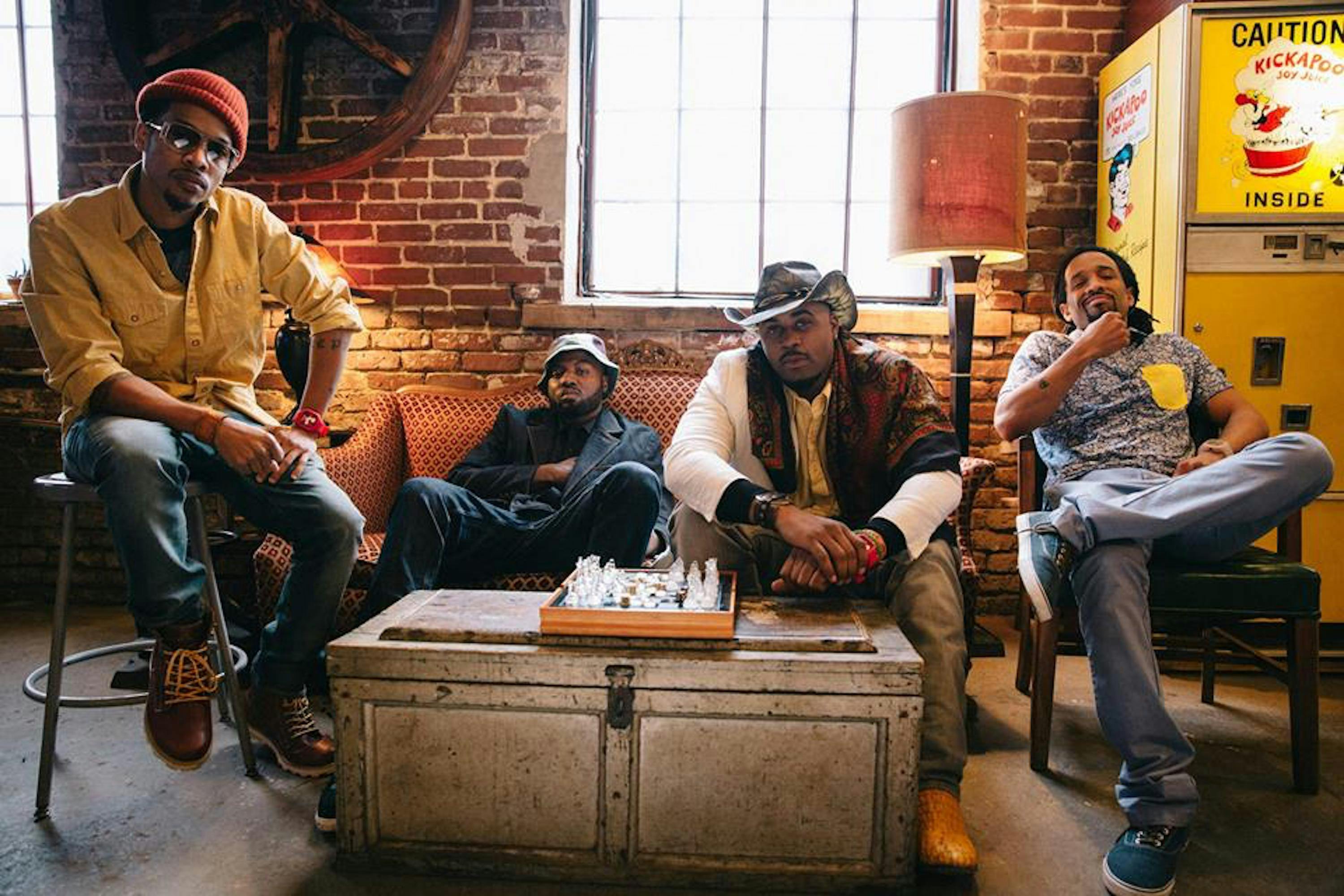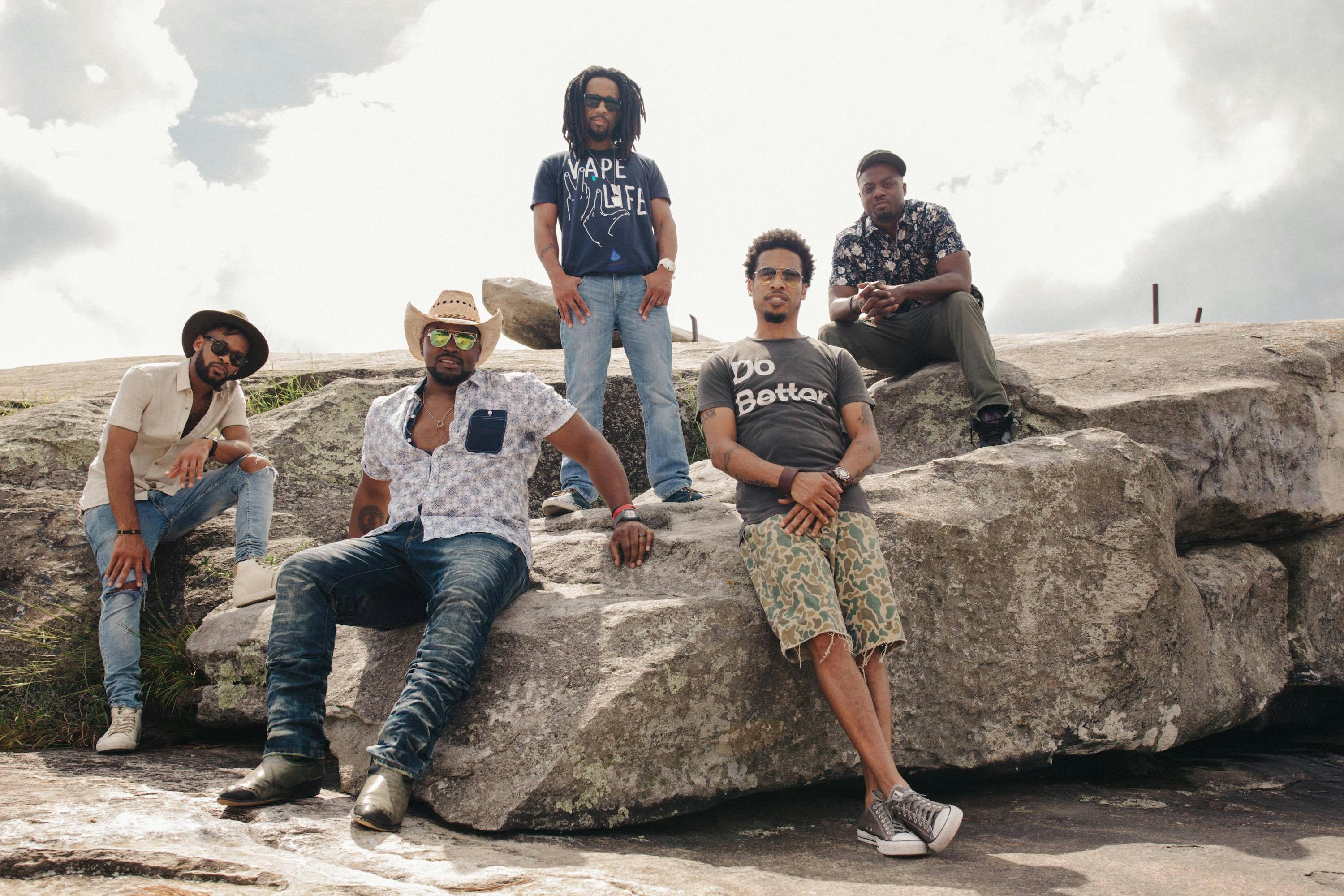The hip, industrial-style, two-story microbrewery (which also serves as an event space) is an investment for the whole group, though it’s primarily operated by Scales and Skinny, who are also the head brewers. They’re applying the same patient, focused energy that made them successful in Hip-Hop to the brewery, and the important space they occupy as Hip-Hop’s pioneering investors in the craft beer industry. They’re in a unique position: although strides have been made over the past few years, craft beer is still a mostly white industry. Also, Hip-Hop has yet to truly catch on to it.
“It’s kinda weird it’s not a part of Hip-Hop,” Scales acknowledges, mentioning that beyond malt liquor collaborations with companies like St. Ides in the 90s, Hip-Hop and beer have mostly failed to merge. “Hip-Hop isn’t proud to say they drink beer. Nobody is walking around saying, ‘I drink craft beer.’”
The craft beer connection was easier for Nappy Roots to make because they're an alternative Hip-Hop group whose hipster audience drinks PBR and Bud Light. While on tour, you’d regularly catch them promoting their shows at breweries, even though seeing black people hanging out there was rare.
“We’d go to breweries and we used to be the only black people there,” Scales says, admitting that initially, their interest in craft beer was mostly a means to promote the group before it developed into a viable business path.
“Black people love beer,” he continues. “Why don’t we get to experience the best of beer, which is craft beer? We saw the void and we wanted to bridge that gap.”
Considering that a lot of breweries are in traditionally Black neighborhoods, and a breweries’ arrival is often the first sign of gentrification, Scales says having a firm footing in the industry is even more important.
“This is another industry that we should be cashin’ in on just like everybody else,” Scales says. “Young men can grow up and be brewers— that’s a real job that you can do. You look around our neighborhoods, we’re buyin’ beer, why don’t we make it? Why don’t we buy our own beer? That’s just another thing that we need to make a little blacker, and there’s nothing wrong with it.”
So even as Hip-Hop begins to slowly inch its way toward embracing craft beer, with artists like Run The Jewels, Bun B, and Eightball & MJG collaborating with various breweries to slap their name and lyrics on beer, Nappy Roots envisions Atlantucky being the brewing partner Hip-Hop turns to when it finally fully embraces the wide-open craft beer market.
“All these people who are doing beer, I want all these artists to come to us to make it,” Scales says. “If a rapper wants to make a beer, come to your rapper brewer friends. You don’t have to go outside of Hip-Hop. We can make our own beer for every artist. Eightball and MJG, they should do their next beer with us, let’s keep it in house.”
With plans for Atlantucky to feature rotating chefs and other pop-ups, Skinny and Scales mostly want to be a pathway for Hip-Hop and black folks in general to get into craft beer.
“We take beer seriously,” Scales says. “And we want people to know that black people understand beer, and we know how to make it. We can talk beer with anybody and there’s a whole community of black people that’s growing that wants to sit down and have beer conversations. Atlantucky will be a place for people to do that.”










